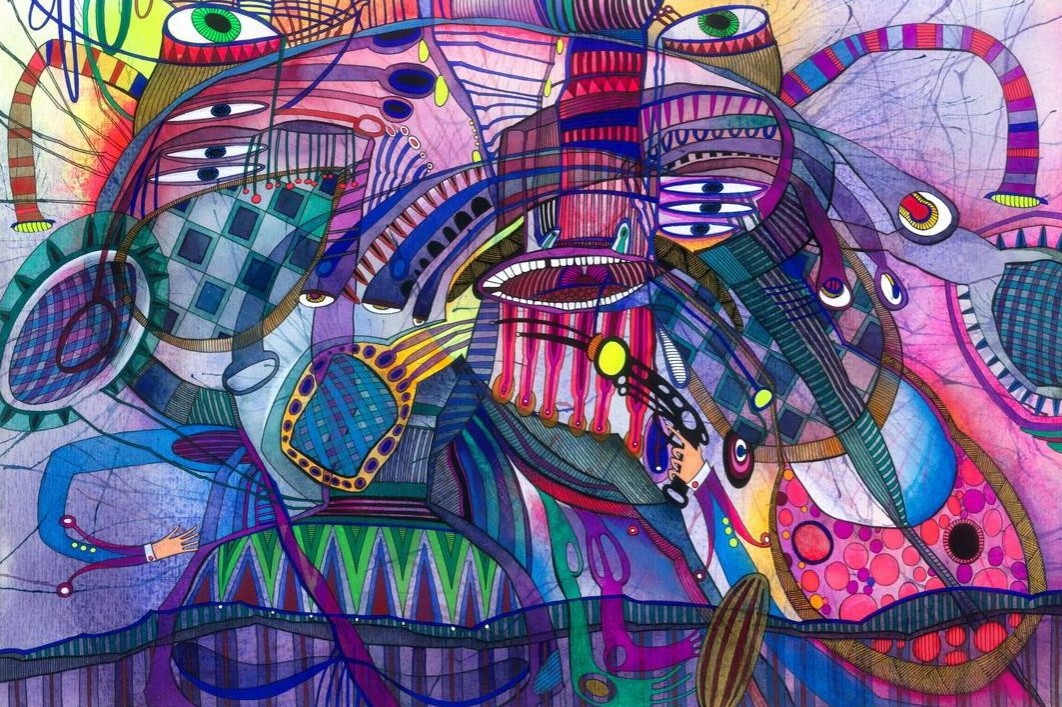
The digital age gives us endless possibilities for self-expression and inspiration. With just a сlick, we can engage with vast content – liking, sharing, posting, blogging, etc. But have you ever experienced this strange feeling when you come across an abundance of aesthetic content? You like it (and/or tap on the like button), but there is something more to it. Is it because you and I want to have similar lives as shown in the posts or are we simply the victims of clever marketing, or possibly… is it all about seeking happiness?
Who is an influencer?

Introducing Kylie Jenner, a pure representative of a celebrity, businesswoman, rich-life aesthetics, and “mom” life. I’ve chosen a very specific post where she is in collaboration with Acne Studios to ask: do you like it? Do you immediately trust her in the choice of clothing brand? What do you feel while looking at the post?
Another example: I was scrolling through my feed and, suddenly, bumped into this reel. Music, visuals, clothes, and even the vibe it gives already significantly influence me – I immediately like it, I want to buy this trench, and I just feel more satisfied. But why?
What is an influencer?
The term influencer has become a widely recognised name, and it seems like everybody on social media claims to this title. However, are we truly aware of the role of being an influencer and the message they try to approach?
There is a common method to categorise various types of influencers: by follower numbers, by the types of content, and by the level of influence. Yet, all of them share some common traits such as showing a very aspirational and inspirational lifestyle, having trustworthiness in and relatability to both the influencer and the content, making product/service recommendations, and establishing a community. It’s worth mentioning that people tend to form their affections through what they see and hear, therefore these very attributes are the tools for making us obsessed with specific content.
Furthermore, we can look at the definitions provided by Cambridge University Press:
An influencer is…
someone who affects or changes the way that other people behave
Cambridge University Press
or
a person who is paid by a company to show and describe its products and services on social media, encouraging other people to buy them
Cambridge University Press
Both of these definitions represent a person who has the power to affect people in different ways – this is an objective understanding of the term. However, it is also about using the skills of storytelling, having a visual aesthetic, being creative and authentic, and, most importantly, constructing a “unique” online individuality. They captivate us through all types of content: from the stories they tell to the collaborations they make. Remember I said that people love what they see and hear? This attraction is also highly dependent on our cultural background and mentality. Influencers are stepping into our cultural values, making it easier for us, the audience, to relate to their messages. They play with our desires in such a way that they become not only figures on social media but also influential voices for speaking up about identity, politics, economics, and other issues.
Still… what really makes us so obsessed?
Undoubtedly, power as well as attractive posts impact us, but are these the only reasons why we tend to love influencers? In the article “Does social media make people happier?” the author presents an interesting point. Instead of arguing whether social media makes people happy or not, he/she represents the duality of making people happier and people looking happier.
The same could be used for influencers who are influencing on social media: is the content really contributing to our happiness, or is it just a different pleasure to each of us? The answer on this question you may answer by yourself and think if such content makes you constantly feel better or not.
Let me know what you think! And share your answers in comments below!
Bibliography:
Miller, Daniel, Elisabetta Costa, Nell Haynes, Tom McDonald, Răzvan Nicolescu, Jolynna Sinanan, Juliano Spyer, Shriram Venkatraman, and Xinyuan Wang. “Does social media make people happier?” in How the World Changed Social Media (London, UK: UCL Press, 2016), p. 193-204. https://doi.org/10.2307/j.ctt1g69z35.20.



Recent Comments